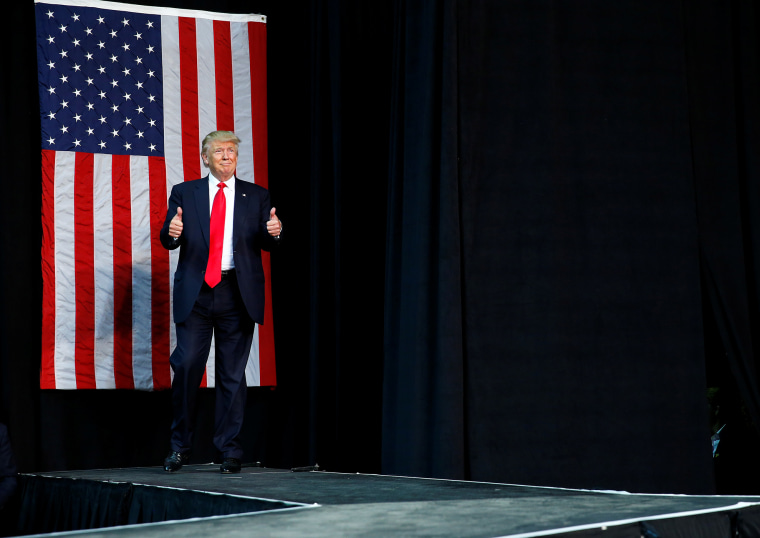In 2012, then-Secretary of State Hillary Clinton was in Cairo for some diplomatic talks when her motorcade was confronted with angry protesters. An unfortunate scene unfolded, with people throwing shoes and tomatoes at the U.S. delegation.
What was the protest all about? The protesters had apparently heard conspiracy theories from American extremists, who said the Obama administration "harbors a secret, pro-Islamist agenda" and backs the Muslim Brotherhood. It wasn't in any way true, of course, but Republicans like Michele Bachmann and Louie Gohmert said it, the comments were picked up by U.S. skeptics in the Middle East, and it wasn't long before many confused people came to believe the nonsense, unaware of the GOP lawmakers' lack of credibility.
"I guarantee you nobody in Egypt really knows who Louie Gohmert is or what he's about," said Steven A. Cook, senior fellow for Middle Eastern Studies at the Council on Foreign Relations, explained in 2013. "So they could very well point to this and say 'Look! He's a member of Congress. This must be serious. There must be something to it.'"
Now, of course, there's a related problem that takes the entire dynamic to the next level. The problem's name is Donald Trump.
In the New York Times yesterday, there was an interesting piece from Michael Wahid Hanna, a senior fellow at the Century Foundation and at the Center on Law and Security at N.Y.U.'s School of Law, and Daniel Benaim, a fellow at the Council on Foreign Relations. They made the point that when the Republican presidential hopeful shares one of his many conspiracy theories -- including his recent assertion that President Obama and Hillary Clinton are the original "founders" of ISIS -- Americans aren't the only folks who notice.
Public opinion has a profound impact on American interests in the Middle East and around the world. The United States' military strategy against the Islamic State depends on mobilizing local actors to lead the fight on the ground. Imagine how much harder that is when people have been led to believe that President Obama created the group. Or think of the added danger to American troops in Iraq, where Shiite militant groups who are fighting the Islamic State remain deeply wary of the United States military. Just this weekend, Hezbollah's leader, Hassan Nasrallah, publicly endorsed Mr. Trump's remarks: "This is an American presidential candidate. This was spoken on behalf of the Republican Party. He has data and documents."
I can think of a few GOP lawmakers who likely winced after seeing that "spoken on behalf of the Republican Party" comment.
The point, of course, is that the American mainstream may know not to take conspiracy theories from the likes of Bachmann, Gohmert, and Trump seriously, but many abroad have no similar understanding.
Far-right nonsense has a global reach in the 21st century. And with that reach comes consequences.
As we discussed a few years ago, it's fair to note that many who are inclined to believe absurd conspiracy theories don't really need proof -- a dynamic that applies to any country -- and some U.S. critics in the Middle East are inclined to believe the worst no matter what American political figures say or do.
But that doesn't mean the Republican Party's candidate for president has to make America's critics' jobs easier by recklessly spouting garbage.
